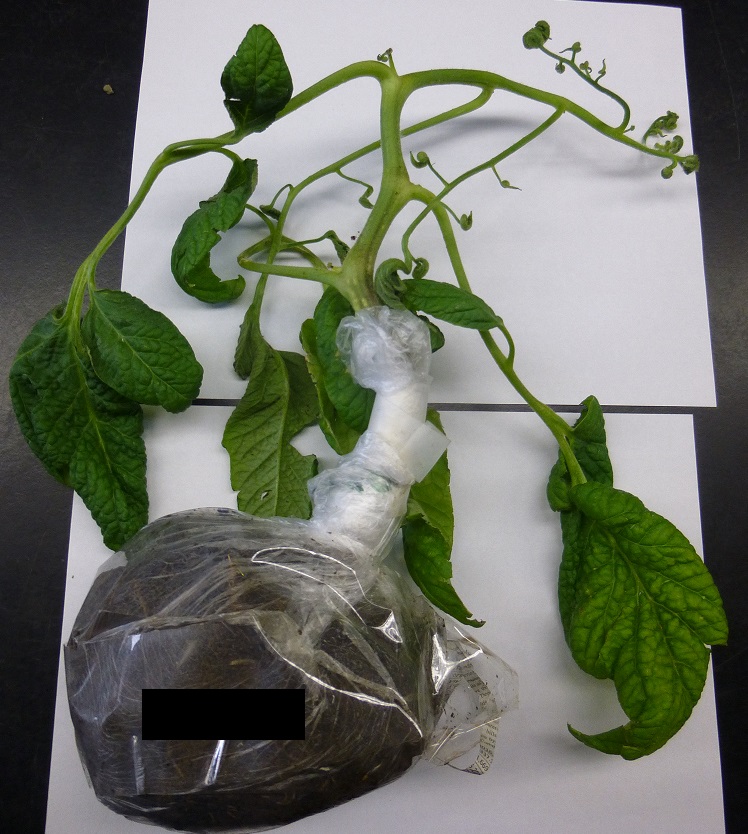Herbicide Injury in Home Gardens
Herbicide Carryover in Topsoil and Garden Amendments
MSU Extension Urban Alert, July 10, 2020
Updated information from earlier post

Plant showing signs of herbicide carryover
The Schutter Diagnostic Lab is receiving garden vegetable samples showing symptoms consistent with synthetic auxin, also known as plant growth regulator,herbicide injury. In many of these cases, we suspect carryover of persistent herbicides in newly purchased topsoil or garden amendments such as compost and manure.
Symptoms:
You may see extreme cupping and twisting of leaves, twisting and/or cracking of stems, and general distortion of plant parts. Leaves may feel thicker than normal, and may have veins that look more parallel than usual. Commonly these symptoms are most pronounced on newer growth. These symptoms can come from other sources, including herbicide drift, or insect or disease issues if symptoms are not widespread.
Indications that herbicide carryover is the issue:
Many different broadleaf plants may be affected, but usually most pronounced injury is to tomatoes and potatoes, with peppers, beans, peas, squash, and other vegetables also showing some symptoms. Another clue is a recent application of manure or compost, or a recent load of topsoil being brought in to fill raised beds.
Is it safe to eat the produce?
Our recommendations are to never ingest produce if you suspect herbicide symptoms are present in your garden and the exact herbicide responsible is unknown. Homeowners should wait until fruits and vegetables no longer show signs of herbicide damage prior to consumption. This may take one to several growing seasons.
Additional resources:
There are several MSU Extension publications that address this issue. For more information, see: Understanding Herbicide Contaminated Soil Amendments for Greenhouses, Nurseries, and Home Gardens; How to Prevent Non-Target Injury of Broadleaf Crops and Vegetables by Residual Herbicides; and Minimizing Pesticide Contaminated Soil Around the Home and Garden. Contact: Noelle Orloff (994-6297; [email protected])
